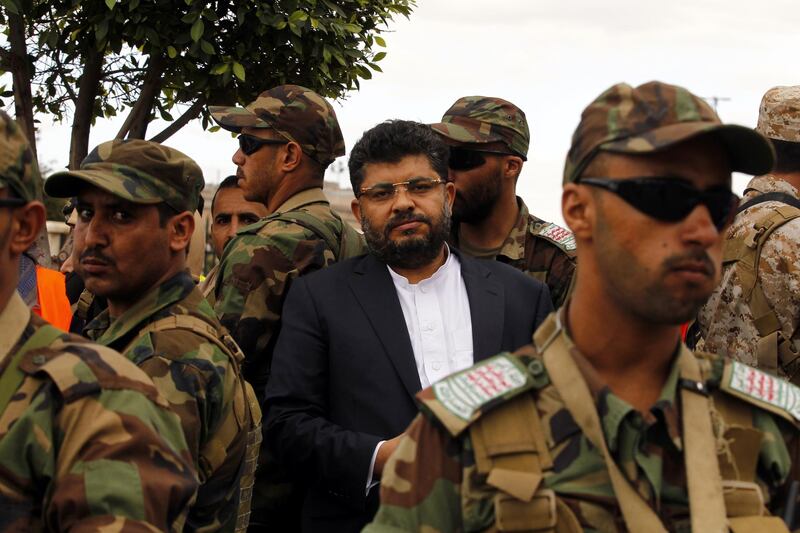The Washington Post on Friday published an opinion piece penned by Mohammed Ali Al Houthi, the head of the Iran-backed rebels' Supreme Revolutionary Committee, drawing criticism for giving a voice to a militia condemned by the Arab Coalition for overrunning Yemeni population centres.
In the column, the Houthi leader criticised the Arab Coalition’s blockade of the Red Sea port city of Hodeidah, which his fighters occupied in 2015. He also said “we love peace...we are ready for peace” as talks continue on gathering both sides of the three-year conflict in a third country in a bid to resolve the war.
But the newspaper’s decision to publish Mr Al Houthi was censured by some on social media.
Summer Nasser, an American-Yemeni, said she was “appalled” by the publication of the views of a man who “put Yemen into a doomed fate via a coup”.
Fatima Alasrar, a Yemeni analyst for the US-based Arabia Foundation, called Mr Al Houthi a “warlord and top war Houthi terrorist,” claimed him to be responsible for more than 7,000 deaths. She also accused him of complicity in the torture of Yemenis.
Warlord and top war #Houthi terrorist was just given a voice in US media talking about peace while holding the entire population hostage. The man is responsible for OVER 7000 deaths, siege of #Taiz, and the killing and brutal torture of #Yemenis. WAKE UP. https://t.co/MpYjQ33HTR
— Fatima Alasrar (@YemeniFatima) November 9, 2018
Others expressed astonishment that he had been given a platform.
Peter Salisbury, a Yemen-focused analyst, wrote: “I did not think I’d see the day when Mohammed Ali Al Houthi had an op-ed in The Washington Post.”
I did not think I'd see the day when Mohammed Ali al-Houthi had an op-ed in the Washington Post...https://t.co/OBVVHUyXUB
— Peter Salisbury (@peterjsalisbury) November 9, 2018
The group regularly chants about the destruction of the US and Israel. Its major allies in the Middle East are Iran and the Tehran-backed Lebanese Shiite militia Hezbollah.
Karen Attiah, the newspaper's Global Opinions editor, responded to the criticism, saying that the opinion pages were to give voices from all sides of the various conflicts in the Middle East.
"We have given space to Saudis, Emiratis, Qataris, Turks, Iran of all sides of many of these debates roiling the region. And yes, including the abusive ones," she wrote.
_________
Read more:
Coalition strikes at rebel-held air base in Yemeni capital
Yemen government welcomes push for peace talks with rebels
_________
One former American diplomat in Yemen pointed to the Houthi treatment of journalists in his criticism of the op-ed. Gerald M. Feinstein, the former US ambassador to Yemen, told Ms Attiah that she should feel “shocked by what the Houthis are doing to journalists in Yemen” instead of publishing their views.
“Two wrongs don’t make a right,” he wrote, in reference to the Saudi murder of Washington Post columnist and Saudi dissident Jamal Khashoggi last month.
Riyadh has admitted that he was killed in its consulate in Istanbul, arresting more than a dozen people in connection with his murder. Turkey accuses Saudi officials of orchestrating his murder and refusing to fully cooperate with its investigation.






